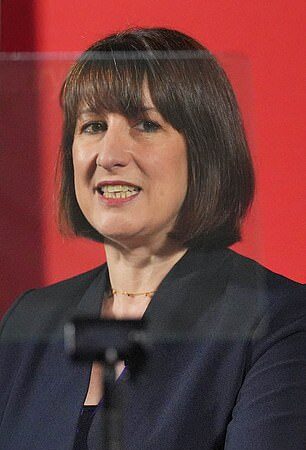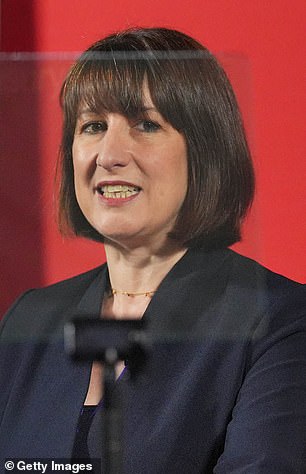

Stuff and nonsense: Rachel Reeves
The public deserves honesty when it comes to the economy.
The claim repeated by Keir Starmer, echoing Rachel Reeves, that the UK faces the worst economic situation since the Second World War is stuff and nonsense.
It undermines the credibility of a Government which seeks to position itself at home and abroad as steady hands on the tiller of state.
In case anyone needs reminding, Britain has been through a series of economic earthquakes since 1945.
Under a Labour administration in the 1970s, when sensible economics was overwhelmed by union power, inflation peaked at 25 per cent. Over the decade, food and beverage prices rose by 300 per cent.
That was a real cost of living crisis.
Moving ahead, the UK then fought a painful war to stay in the exchange rate mechanism in the 1990s which saw the bank rate rise to 13.88 per cent and citizens with mortgages returning the keys of homes in negative equity.
In 2008 the great financial crisis crushed the public finances and Labour left the coalition government with a legacy of deep recession. Since then, Covid and the invasion of Ukraine have piled on the agony.
It is in the interest of Labour to paint the most dismal picture as it prepares the country for tax increases in the autumn.
The reality is that the economy is in the best shape since Covid.
Reeves is critical of alleged corruption surrounding pandemic contracts.
She can hardly blame Boris Johnson et al for a catastrophe that began in China and the handling of a crisis which stacks up well against almost every other Western democracy.
What the Chancellor should be acknowledging is how the UK, in spite of the Truss episode, is emerging from recession robustly.
Indeed, so far this year Britain is the fastest-growing economy in the G7. Inflation has stabilised at the 2 per cent target and if the Bank of England does its stuff, the bank rate, currently at 5.25 per cent, could come down by a quarter of a percentage point on Thursday.
The robustness of the UK economy is evident from the latest bank results.
Lloyds has cut back its provisions sharply. And NatWest, the nation’s biggest lender to small and medium-sized enterprises, reports little stress, with the exception of parts of the hospitality sector.
It has shown its confidence by snapping up Metro Bank’s mortgage book of £2.4billion, adding to its role as the nation’s second-biggest player in home loans.
New-ish chief executive Paul Thwaite is remarkably bullish about prospects, raising guidance and moving rapidly to remove the remaining state ownership, which has fallen dramatically to 19 per cent.
An improved dividend makes more share placings with institutions likely.
Amid the optimism, the public finances might look to be the exception requiring dramatic action. The idea that somehow the great ship of state is about to hit the rocks also needs to be corrected.
There is much to be repaired including potholes, NHS waiting lists, and overcrowded prisons among other things. It is not clear, however, that simply throwing cash at the problems is the solution.
Among the main reasons for the £20billion or so black hole discovered by Reeves is Labour’s refusal to hold the line on public sector pay and to placate the unions by giving into inflationary demands which, potentially, could keep interest rates higher than they need to be.
The curiosity about Reeves’ rushed audit of the public finances is that it is being conducted by the Treasury.
This amounts to the height of hypocrisy after a King’s Speech which sought to plug the Liz Truss loophole by vowing that there would be no fiscal event without the scrutiny of the Office for Budgetary Responsibility.
Binning scrutiny for political effect is precisely what the Chancellor is doing.
Britain’s public finances are not pretty. But compared with our G7 allies (with the exception of Germany) they are positively hunky-dory.
Indeed, it is possible to argue that with a rapid-fire series of interest rate cuts and faster growth increasing the tax take, there is no need for new levies.
Don’t expect to hear that from world traveller Reeves on Monday.
DIY INVESTING PLATFORMS

AJ Bell

AJ Bell
Easy investing and ready-made portfolios

Hargreaves Lansdown

Hargreaves Lansdown
Free fund dealing and investment ideas

interactive investor

interactive investor
Flat-fee investing from £4.99 per month

Saxo

Saxo
Get £200 back in trading fees
Trading 212
Trading 212
Free dealing and no account fee
Affiliate links: If you take out a product This is Money may earn a commission. These deals are chosen by our editorial team, as we think they are worth highlighting. This does not affect our editorial independence.







